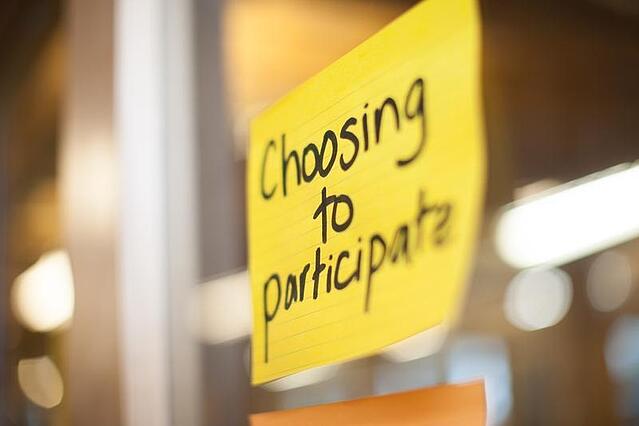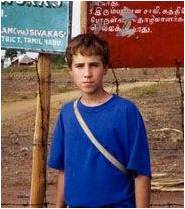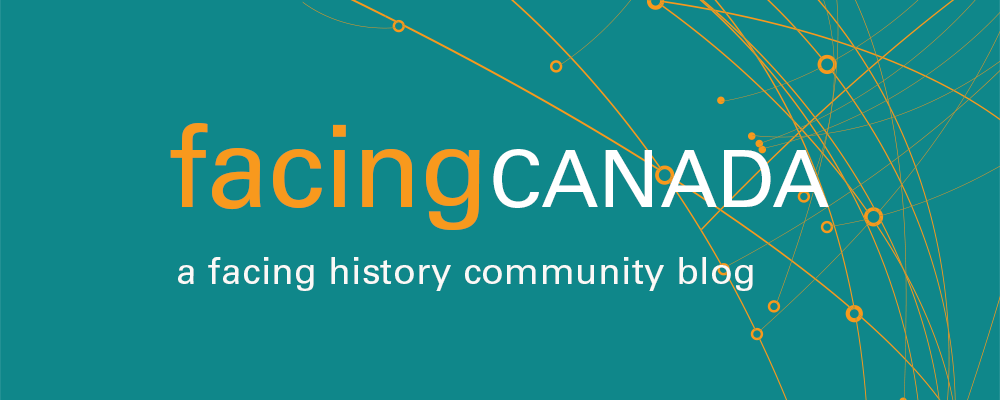The day after a photograph of a drowned Syrian boy went viral, another image of the same child appeared below the headlines in The Toronto Star. I sat at my kitchen table reading the article shaking my head and covering my mouth with my hand. 
I then put the paper down and began making dinner.
Hours later, as my nine year old son, Garret, came into his room, I could tell he had been crying. I asked him what was wrong and he said that a little boy had died and that he had read about it in the paper. Now as a parent my first reaction was excitement; my 9 year old son read an article in the paper. Then I was horrified; my son read a devastating article in the paper. He had a lot of questions and he wanted answers. His questions were not superficial, or immature; they were the kind of questions I would dream of my grade 7s asking regularly. He wanted to know why people are mean. Why would a parent let their child die? Why did they want to leave Syria? And probably the most powerful question: What are we doing to help?
I wasn’t sure where to go in this situation. My son is only nine, but is that too young to have a conversation about a difficult reality? When he started crying for the little boy and the boy’s parents, should I have stopped the conversation and told him, “We shouldn’t talk about it anymore”? Should I have told him that he did not need to worry about these things and that he should focus on soccer tryouts and the first day of school?
As teachers we challenge our students to think: To think critically, deeply, and from different perspectives. So when Garret asked me these questions, I told him what I knew. When I kissed him goodnight, the tears had stopped and he had a plan to help. However, as I walked out of his room, a part of our conversation stuck with me. He had asked me, “Why did noone help the little boy?” It was a question to which I did not have a good answer. I guess I could have talked about money, and power but I don’t think he would have bought it. I told him I didn’t know and the truth is I really don’t.
 CSI, Toronto, ON. August 20, 2015. Nick Kozak Photo.
CSI, Toronto, ON. August 20, 2015. Nick Kozak Photo.
To a nine year old the solutions are easy. As educators, we often reinforce this idea that the solutions to human problems are just around the corner: Garret has heard the stop bullying
I return to the kitchen and the photo of the drowned boy and think, have I done the right thing? Honestly I don’t know, but it is the same thing I often ask myself at the end of a school day when we discuss current events. Am I increasing students’ knowledge, awareness, and compassion? Or am I simply proving to them that monsters exist? At what age are young people too young to hear the truth?
Each year I pull out articles from the paper throughout the summer to discuss in class. Every year I filter out the topics I feel are too risky to be discussed in a middle school classroom. I have no criteria for this selection. I simply use my gut. When I select something to integrate directly with the curriculum, it often appears in a lesson, in an inquiry gallery walk, or as reference material. When something happens during the school year - like the Charlie Hebdo shootings - I often start with the question, “Did anyone hear what happened yesterday?” There is always someone in the room who knows and that becomes our starting point. I have found the conversations are very honest because I share how I am feeling, or how the event impacts my life. For grade 7 students “being real” with them is a sign of respect and they respond in turn with respect.
As I sit looking at the photo of this tiny boy, I think I will not discuss this with my class
Colleagues have told me that I often push the envelope with the themes I tackle in my classroom, and upon reflection I could agree. But I have found that sometimes my students can ask questions and offer solutions that make the room pause. At times I wonder if these moments are the things my students will remember and take with them as they get older. Taking the Facing History Summer Seminar made me realize many teachers are talking about difficult topics, even in middle school, with powerful results. I remember watching clips of a spoken word festival where students discussed social issues through poetry. It was so powerful to hear a student take something they had learned about in class and address it from their point of view. I learned that the only way we change human behaviour is to be aware of and discuss what has happened in history and what is happening now.
 I am reminded of Craig Kielburger, the founder of Free the Children, and how his crusade began because he saw an article about a child in the paper. I wonder if the discussion I had with my son, or the ones I have with my students in the classroom will spark that kind of lasting commitment to change the world for the better? While this is my hope, the issue remains: when is it too early to introduce difficult - potentially traumatizing - events into the classroom? I believe discussing difficult issues are important. I believe innocence is also very important. So when should the two things meet?
I am reminded of Craig Kielburger, the founder of Free the Children, and how his crusade began because he saw an article about a child in the paper. I wonder if the discussion I had with my son, or the ones I have with my students in the classroom will spark that kind of lasting commitment to change the world for the better? While this is my hope, the issue remains: when is it too early to introduce difficult - potentially traumatizing - events into the classroom? I believe discussing difficult issues are important. I believe innocence is also very important. So when should the two things meet?

